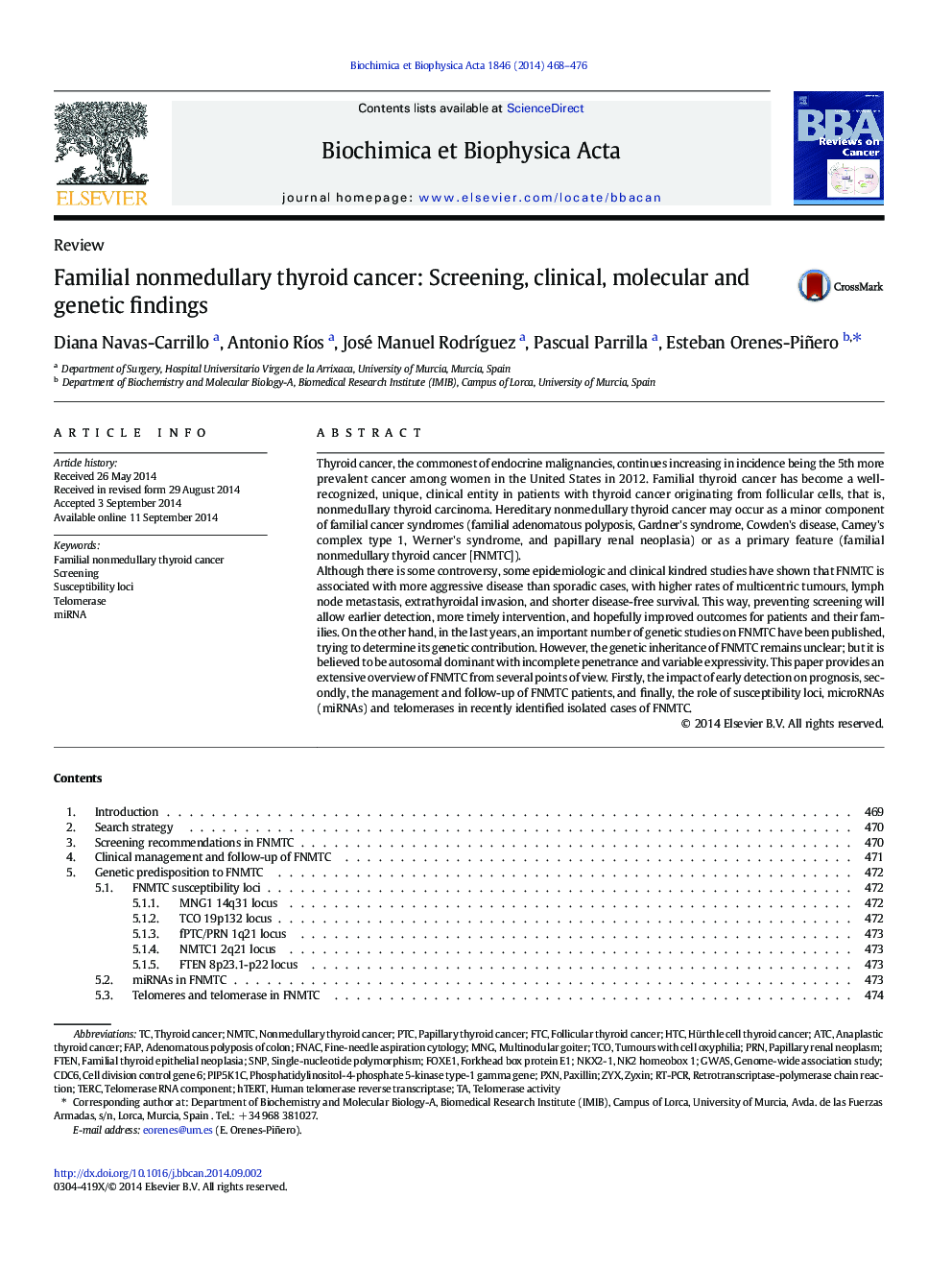| Article ID | Journal | Published Year | Pages | File Type |
|---|---|---|---|---|
| 8429437 | Biochimica et Biophysica Acta (BBA) - Reviews on Cancer | 2014 | 9 Pages |
Abstract
Although there is some controversy, some epidemiologic and clinical kindred studies have shown that FNMTC is associated with more aggressive disease than sporadic cases, with higher rates of multicentric tumours, lymph node metastasis, extrathyroidal invasion, and shorter disease-free survival. This way, preventing screening will allow earlier detection, more timely intervention, and hopefully improved outcomes for patients and their families. On the other hand, in the last years, an important number of genetic studies on FNMTC have been published, trying to determine its genetic contribution. However, the genetic inheritance of FNMTC remains unclear; but it is believed to be autosomal dominant with incomplete penetrance and variable expressivity. This paper provides an extensive overview of FNMTC from several points of view. Firstly, the impact of early detection on prognosis, secondly, the management and follow-up of FNMTC patients, and finally, the role of susceptibility loci, microRNAs (miRNAs) and telomerases in recently identified isolated cases of FNMTC.
Keywords
Related Topics
Life Sciences
Biochemistry, Genetics and Molecular Biology
Cancer Research
Authors
Diana Navas-Carrillo, Antonio RÃos, José Manuel RodrÃguez, Pascual Parrilla, Esteban Orenes-Piñero,
